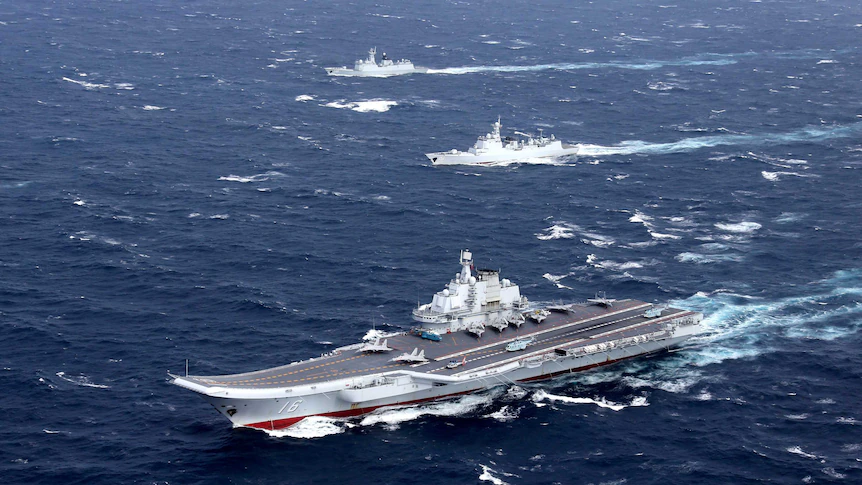By Stephen Dziedzic
Fiji’s Prime Minister Sitiveni Rabuka has delivered a blow to China’s security ambitions in the Pacific, declaring his country would “not welcome” any Chinese military bases in the region.
But Mr Rabuka has also stressed he doesn’t believe that China is actively looking for such a security foothold in the Pacific — saying the rising power doesn’t need it to project power.
Sitiveni Rabuka was repeatedly pressed about China’s role in the Pacific in the wake of his speech to the National Press Club in Canberra today.
Mr Rabuka didn’t mince words when he was asked if he believed that Beijing should be permitted to establish a military base in the Pacific.
Not on my watch
The prime minister also gave a direct answer when asked if he would use his influence in the broader region to stop China gaining a military base.
“As long as I’m prime minister, yes,” he said
“And I think that China understands that well.”
Mr Rabuka also said earlier that Pacific nations were trying to “cope with a China that is big, really big” and which would “probably like to spread its influence” in the region.
He said that meant that Pacific nations which were “friendly to all and enemies to none” had a “fairly tough course to steer”.
But he also praised Xi Jinping as a “great leader” who had lifted China out of poverty, and told the Press Club that he didn’t believe China was actively searching for a military base in Pacific island nations.
“They have proven that they do not need a base outside China to be able to launch what they have into any other area of the world,” he said.
“So they can go east of China and far and go as far east to America as they like, or go west and go to the furthest point in Europe if they like, so there is really no need for them to set up any other bases in the Pacific.”
Rabuka not on same page
That runs counter to Australian government assessments, which warn that China is seeking a security foothold in the Pacific — potentially through “dual use” infrastructure projects which could be used for military purposes.
The Pacific Minister Pat Conroy has repeatedly said publicly that Beijing is seeking a security “presence” in the region, including through its attempts to expand police cooperation in the Pacific.
Mihai Sora from the Lowy Institute said that while Canberra would welcome Mr Rabuka’s clear statement about a Chinese military base, the prime minister’s statements showed he was not on the same page as Australia when it came to Beijing’s objectives.
“Despite earlier acknowledging China’s designs to increase influence, he doesn’t connect that influence with seeking greater military access,” he said.
“Australia still needs to do far more to achieve alignment in strategic world views, even with among our closest Pacific security partners.”
New Australian agreement needed
Mr Rabuka also said he would like to explore signing a new overarching agreement with Australia, saying the relationship may have “reached a point … where our renewed and elevated partnership needs to step up to an agreement or treaty”.
The Albanese government has signed a slew of new strategic agreements with Pacific nations like Tuvalu, Nauru and Papua New Guinea, and is exploring new pacts with Tonga and Vanuatu.
Mr Rabuka did not provide detail about how a new agreement could work, but said it would allow Australia to expand assistance to Fiji and help the relationship withstand the “political whims of the winning parties in the various elections, because there will be national treaties between sovereign states”.
He also provided more detail about his framework for an “Ocean of Peace” – which he plans to bring to other Pacific leaders at a high-level meeting in Solomon Islands in September.
Mr Rabuka said the strategy would enshrine peaceful cooperation and respect for international law at its heart, and allow the Pacific to “set out how we expect those outside the region to respect our approaches, and participate with us”.
“This means respect for the Pacific way,” he said.
“Respect for norms and law. No coercion.”
